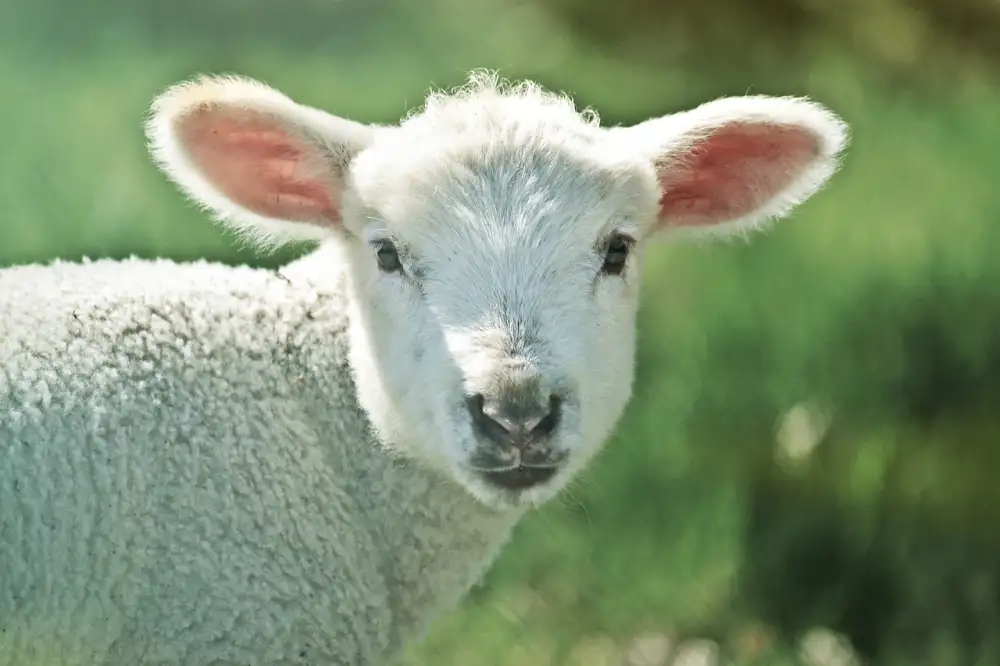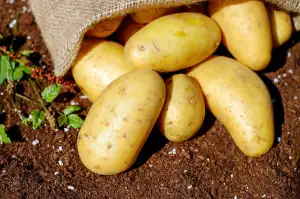Delicious Kosher for Passover Recipes: Exploring the Flavors of Jewish Dietary Laws

- Understanding Passover and its significance in Jewish culture
- Explaining the dietary restrictions during Passover
- The concept of chametz and its prohibition during Passover
- Highlighting the importance of kosher certification for Passover foods
- Exploring traditional Passover dishes and their kosher variations
- Tips for preparing a kosher for Passover meal
- Creative and delicious kosher for Passover recipes to try
- Where to find kosher for Passover ingredients and products
Passover is a significant holiday in the Jewish calendar, commemorating the liberation of the Israelites from slavery in ancient Egypt. During this time, Jewish dietary laws become even more stringent, leading to the creation of Kosher for Passover dishes. These special recipes adhere to specific guidelines, ensuring that they are free from chametz (leavened products) and other forbidden ingredients. Join us as we delve into the flavors of Jewish dietary laws and explore delicious Kosher for Passover recipes that will tantalize your taste buds.
Understanding Passover and its significance in Jewish culture
Passover, also known as Pesach, is one of the most important festivals in Jewish culture. It commemorates the liberation of the Israelites from slavery in ancient Egypt. The story goes that Moses led the Israelites out of Egypt, and during their journey, they didn't have time to let their bread rise. As a result, they ate unleavened bread called matzah.
Passover holds great significance as it symbolizes freedom and redemption. It is a time for Jews to reflect on their history, remember their ancestors' struggles, and celebrate their deliverance.
During Passover, Jewish dietary laws become even more stringent. This is because certain foods are prohibited during this time to honor the traditions and restrictions observed by the Israelites during their exodus from Egypt.
Understanding the significance of Passover helps us appreciate the importance of adhering to these dietary restrictions and exploring the flavors of kosher for Passover recipes. By embracing these culinary traditions, we can connect with Jewish culture and experience the rich heritage behind this special holiday.
Explaining the dietary restrictions during Passover
During the Passover holiday, Jewish dietary laws become even more stringent. The main restriction is the prohibition of chametz, which refers to any food product made from wheat, barley, rye, oats, or spelt that has come into contact with water and been allowed to ferment and rise. This includes bread, pasta, cakes, cookies, and other leavened products. The reason for this restriction is to commemorate the Israelites' hasty departure from Egypt when they didn't have time to let their bread rise. Instead, they ate unleavened bread called matzah. By abstaining from chametz during Passover, Jews remember this important event in their history and show their commitment to observing their religious traditions.
The concept of chametz and its prohibition during Passover
During Passover, one of the key dietary restrictions is the prohibition of chametz. Chametz refers to any food or drink that is made from wheat, barley, rye, oats, or spelt and has come into contact with water for more than 18 minutes and has not been fully baked within 18 minutes. This includes bread, pasta, cakes, cookies, and certain alcoholic beverages.
The prohibition of chametz stems from the biblical commandment to remove all leavened products from our homes during Passover. It symbolizes the haste in which the Jewish people left Egypt, as they did not have time to let their dough rise before baking it.
To ensure that no chametz is consumed during Passover, Jewish households thoroughly clean their homes and rid them of any traces of leavened products. This process is known as "bedikat chametz" or the search for chametz. It involves a careful inspection of every nook and cranny to make sure no chametz remains.
During this time, special utensils and cookware are used exclusively for Passover preparations to avoid any cross-contamination with chametz. Many families also choose to use separate sets of dishes and cutlery specifically designated for Passover use.
By abstaining from chametz during Passover, Jews are reminded of their ancestors' journey out of Egypt and their reliance on unleavened bread known as matzah. Matzah represents humility and freedom from slavery.
Understanding the concept of chametz helps us appreciate the significance behind these dietary restrictions during Passover and allows us to embrace the culinary traditions that have been passed down through generations.
Highlighting the importance of kosher certification for Passover foods
During the Passover holiday, it is crucial to ensure that all food consumed adheres to the strict dietary laws of Judaism. This is where kosher certification plays a vital role. Kosher certification guarantees that the food has been prepared according to Jewish dietary laws and is suitable for consumption during Passover. It ensures that the ingredients used are free from any chametz or leavened products, which are prohibited during this time. By choosing kosher certified Passover foods, individuals can have peace of mind knowing that their meals align with their religious beliefs and traditions.
Exploring traditional Passover dishes and their kosher variations
During the Passover holiday, there are several traditional dishes that hold significant cultural and historical importance for the Jewish community. These dishes have been passed down through generations and are enjoyed by families during the Seder meal. Some popular traditional Passover dishes include matzo ball soup, gefilte fish, brisket, and charoset.
To ensure these dishes are kosher for Passover, certain variations need to be made. For example, instead of using regular flour in recipes, matzo meal or potato starch can be used as a substitute. Additionally, ingredients such as bread crumbs or leavening agents like baking powder should be avoided.
Despite these restrictions, there are still countless delicious variations of traditional Passover dishes that can be enjoyed. From flavorful matzo ball soup with fresh herbs to tender brisket cooked with aromatic spices, these kosher for Passover versions maintain the essence of the original recipes while adhering to dietary laws.
Exploring these variations allows individuals to embrace the rich culinary traditions of Passover while ensuring their meals remain kosher and in accordance with Jewish dietary laws.
Tips for preparing a kosher for Passover meal
When preparing a kosher for Passover meal, it is important to keep in mind the dietary restrictions and guidelines. Here are some tips to help you navigate the process:
1. Start with a clean kitchen: Before you begin cooking, make sure your kitchen is thoroughly cleaned and free from any chametz (leavened products). This includes removing all bread, pasta, and grains.
2. Use kosher ingredients: Look for products that have been certified kosher for Passover by a reliable authority. This ensures that they meet the strict standards required during this time.
3. Avoid chametz substitutes: While there are many chametz substitutes available in the market, it is best to stick to naturally kosher for Passover ingredients rather than relying on processed alternatives.
4. Separate utensils and cookware: To maintain the integrity of your kosher for Passover meal, use separate utensils and cookware that are designated solely for this purpose. This prevents cross-contamination with non-kosher foods.
5. Be mindful of ingredients: Read labels carefully to ensure that all ingredients used in your recipes are kosher for Passover. Pay attention to hidden additives or preservatives that may not be suitable.
6. Plan ahead: Planning your menu in advance will help you stay organized and ensure that you have all the necessary ingredients on hand. Consider incorporating traditional dishes alongside new recipes to create a well-rounded meal.
7. Embrace fresh produce: Fruits, vegetables, and herbs are naturally kosher for Passover and can add vibrant flavors to your dishes. Incorporate them into salads, side dishes, or even as garnishes.
8. Experiment with alternative flours: Instead of using regular flour, try using matzo meal or almond flour in your baking recipes. These alternatives not only adhere to kosher guidelines but also add unique textures and flavors.
By following these tips, you can confidently prepare a delicious and authentic kosher for Passover meal that honors the traditions and dietary laws of this significant holiday.
Creative and delicious kosher for Passover recipes to try
Creative and Delicious Kosher for Passover Recipes to Try:
1. Matzo Ball Soup: A classic Passover dish, this recipe features fluffy matzo balls in a flavorful chicken broth. Add vegetables like carrots and celery for extra taste.
2. Gefilte Fish: This traditional Jewish dish is made by poaching ground fish with onions, carrots, and spices. Serve it chilled with horseradish for a refreshing appetizer.
3. Charoset: This sweet paste made of apples, nuts, honey, and wine symbolizes the mortar used by Hebrew slaves in ancient Egypt. Spread it on matzo or enjoy it as a side dish.
4. Potato Kugel: Grated potatoes mixed with eggs, onions, and seasoning create a crispy and savory side dish that pairs well with any Passover meal.
5. Flourless Chocolate Cake: Indulge your sweet tooth with this rich and decadent dessert made from ground almonds or hazelnuts instead of flour.
6. Matzo Brei: A delicious breakfast option, matzo brei is made by soaking matzo in beaten eggs and frying until golden brown. Serve it with syrup or jam for added sweetness.
7. Tzimmes: This sweet carrot dish is slow-cooked with honey, dried fruit, and spices to create a flavorful side that complements any Passover feast.
These recipes offer a variety of flavors and textures while adhering to the dietary restrictions of Passover. Enjoy exploring these creative dishes during this special time of year!
Where to find kosher for Passover ingredients and products
When it comes to finding kosher for Passover ingredients and products, there are several options available. Many grocery stores and supermarkets have dedicated sections or displays for Passover products during the holiday season. These sections typically include a wide range of kosher for Passover items such as matzo, gefilte fish, horseradish, and other traditional foods.
In addition to physical stores, there are also online retailers that specialize in kosher for Passover products. Websites like Kosher.com and Amazon offer a variety of options for purchasing ingredients and products that meet the dietary restrictions of Passover.
For those who prefer a more personalized shopping experience, local Jewish specialty stores or kosher markets may be a great option. These establishments often carry a wide selection of kosher for Passover ingredients and can provide guidance on specific dietary needs.
It's important to note that not all products labeled as "kosher" are necessarily suitable for Passover. Look for products with the specific "Kosher for Passover" certification symbol to ensure they meet the necessary requirements.
By exploring these various avenues, you can easily find the kosher for Passover ingredients and products needed to create delicious meals that adhere to Jewish dietary laws during this special time of year.
In conclusion, embracing the culinary traditions of Passover allows us to connect with Jewish culture and history through food. By understanding the significance of Passover and the dietary restrictions that come with it, we can appreciate the effort put into creating delicious kosher for Passover dishes. Whether you are following these dietary laws or simply looking to try something new, exploring the flavors of Jewish cuisine during this time can be a truly enriching experience. So why not venture into the world of kosher for Passover recipes and discover the delightful tastes that await you?
Published: 03. 12. 2023
Category: Food



